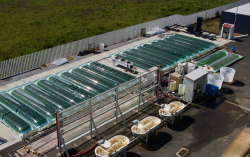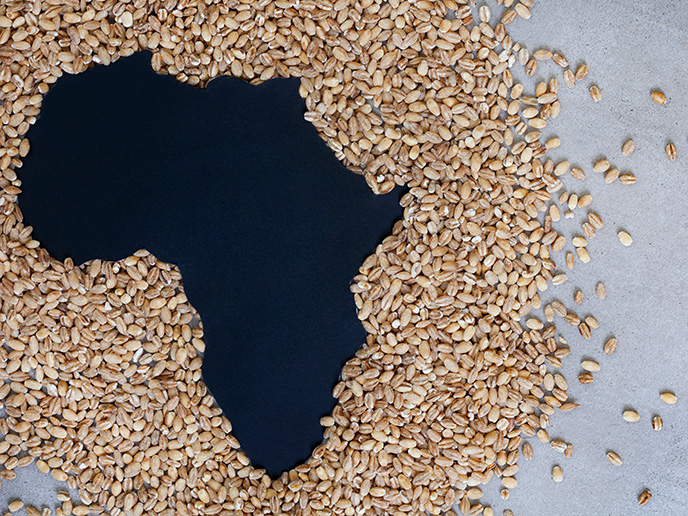Sustainable biofuel from algae
In the new bio-based economy, one of the most promising sustainable sources of chemicals and biofuels for food and non-food products are microalgae. However, to realise their full potential an increase in the scale of microalgae production needs to be matched with a simultaneous decrease in production costs. Currently, the technology required to fully exploit microalgae is still in its infancy. The EU funded FUEL4ME (Future European league 4 microalgal energy) project was established to develop a sustainable production chain that would enable second generation biofuels to compete with fossil fuels. The aim was to exploit algae's unique ability to produce lipids using energy from photosynthesis. These lipids form excellent starting materials for biofuels and other products such as animal feed. Moreover, the target algae used in the project do not compete with food crops for land and freshwater as they are grown in saltwater. ′Project scientists investigated in detail the molecular and metabolic mechanisms governing lipid accumulation in two microalgae species and demonstrated enhanced lipid accumulation by metabolic engineering. Furthermore, we compared the current two-step batch production process for microalgal lipids with a newly developed continuous one-step process and optimised lipid production under different growth conditions′, says project coordinator Dr Dorinde Kleinegris. ′Researchers developed the various steps of the downstream processing chain, which involved harvesting, cell disruption, lipid extraction and fractionation and hydro-treatment of the lipids to create biofuel. They were shown to be successfully applicable to microalgae and are now ready to be used in commercial processes, which are not only limited to the production of biofuels.′ Although with lower lipid content, the one-step process had comparable lipid productivity as compared with the traditional batch process, but required testing on a larger scale. The consortium designed a pilot plant for outdoor production and set up microalgae production in three pilot plants based in Italy, the Netherlands and Israel respectively, and one demonstration facility in Spain. A life-cycle assessment study was carried out to determine the actual state of the technology as well as how key parameters influence the sustainability of the FUEL4ME integrated process. According to Dr Kleinegris, ′The main influences upon sustainability were cultivation and harvesting, electricity demand, sources of freshwater and carbon dioxide and suitable land. The research has addressed some of these parameters by improving productivity of cultivation and harvesting efficiency, including water and resource re-use in cheap desert land.′ Further improvements, however, need to be made to make the process of biofuel production with microalgae fully economic and environmentally sustainable. Currently the process is best suited for the production of high value products such as polyunsaturated fatty acids , while a promising biorefinery approach has been shown to strongly improve economic stability. ′We believe that FUEL4ME's long-term innovation strategy, which features a greater focus on high value products, will result in economically feasible and environmentally sustainable microalgae-based products. This will ensure a further decrease in production costs and an increase in the scale of production. Biofuel from microalgae can then become a possibility′, Dr Kleinegris explains. The project has provided an excellent opportunity for industrial partners to conduct pilot tests of their technologies to achieve more reliable and scalable industrial solutions for microalgae cultivation and downstream processing. Moreover, it has produced highly skilled professionals with expertise in algal microbiology and microalgae cultivation and processing systems. FUEL4ME has made a valuable contribution to Europe's research capacity and bioeconomy by developing knowledge and skills as well as sustainable valorised products from microalgae. Furthermore, this eco-friendly process has the capacity to reduce dependence on fossil fuels.
Keywords
Biofuel, microalgae, FUEL4ME, life-cycle assessment, polyunsaturated fatty acids







